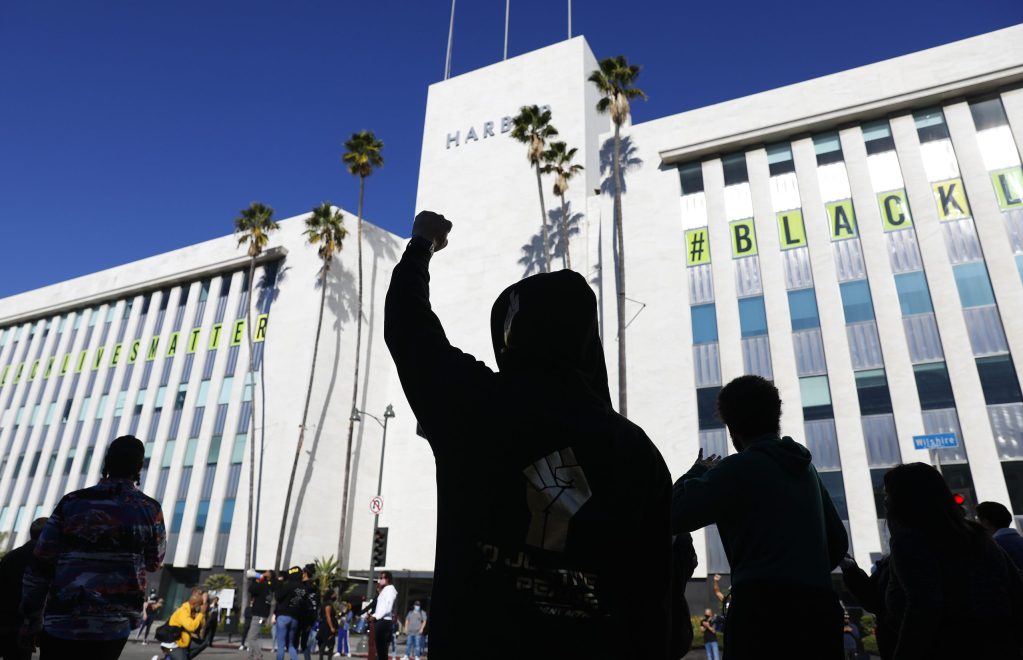Black Lives Matter Global Network Foundation Inc. and Federal Investigations: A Closer Look
The Black Lives Matter Global Network Foundation Inc. (BLMGNF) recently issued a statement denying reports of being “a target of any federal criminal investigation.” This response follows claims suggesting that the U.S. Justice Department is investigating potential fraud against donors who contributed during the wave of racial justice protests in 2020, particularly in the aftermath of George Floyd’s murder.
Context of the Allegations
Reports surfaced from anonymous sources citing investigations focusing on the BLMGNF’s handling of over $90 million in donations received during the peak of protests in 2020. Many local BLM chapters felt sidelined, asserting that they did not receive a share of these funds. In fact, the Los Angeles chapter eventually split to form Black Lives Matter Grassroots, aiming to realign their focus on direct community engagement and support.
Commitment to Transparency
In an emailed statement to Capital B, the BLMGNF emphasized their dedication to transparency and accountability. They expressed a commitment to responsibly managing resources aimed at benefiting Black communities. The foundation’s focus remains on building a better future, reinforcing their stance even amidst the swirling accusations.
Internal Divisions and Realigned Focus
The reported federal investigation has reignited scrutiny over how donations were allocated, calling attention to the operational structures within the movement. The BLM movement largely operates through two entities: the BLMGNF, which focuses on fundraising, and grassroots chapters that engage directly in protests and community activities. Local frustrations escalated into action, leading to the creation of organizations like Black Lives Matter Grassroots, directed by Melina Abdullah, a professor at California State University, Los Angeles.
Historical Context and Leadership Changes
Founded in 2013 by Alicia Garza, Patrisse Cullors, and Opal Tometi in response to racial injustices, the movement has seen significant changes in leadership. Cullors stepped down as executive director in May 2021 amidst rising criticism of the BLMGNF’s operations and governance. The original founders, Garza and Tometi, also ceased their direct involvement, leading to broader concerns about accountability and structural organization within the foundation.
Legal Challenges and Grassroots Perspectives
In 2022, Abdullah’s chapter filed a lawsuit against the BLMGNF for control over their social media accounts, reflecting further pushback against perceived mismanagement. Although the lawsuit was dismissed, Abdullah’s group reiterated that they do not seek joy in the prospect of possible criminal repercussions for the BLMGNF, maintaining a focus on their foundational mission rather than internal conflicts.
A Movement with No Centralized Leadership
Part of the complexity surrounding the BLMGNF arises from the decentralized nature of the Black Lives Matter movement itself. Initially influenced by civil rights activist Ella Baker’s philosophies, the movement emphasized grassroots leadership rather than hierarchical structures. This decentralized approach, while empowering, has also created challenges in accountability and resource allocation.
Notable Incidents and Criticisms
Issues around financial management within the organization have come to public attention through various incidents. One prominent case involved Tyree Conyers-Page, a self-proclaimed leader of the Atlanta chapter, who was arrested for allegedly misappropriating over $200,000 in donor funds. The belief that donors’ contributions have not been adequately distributed has led to significant public outcry and criticism from various sectors.
Assets and Spending Scrutiny
Furthermore, investigations have drawn attention to how donor funds have been utilized, including the controversial purchase of a multi-million dollar home in Studio City, California. Responding to such claims, Cullors has denied any wrongdoing while indicating that some funds were used for personal gatherings prior to her resignation.
Calls for Financial Accountability
In late 2020, multiple organizations identifying as BLM chapters issued a statement requesting increased financial transparency and accountability from the BLMGNF. While a report indicated that $21.7 million was allocated to Black organizations, several local entities continued to express dissatisfaction over unreceived funds, further complicating the narrative surrounding financial stewardship.
BLM’s Impact on Policy and Community
Despite the ongoing scrutiny, the Black Lives Matter movement has had a significant impact on local and national policy changes. Their advocacy has driven legislation like Measure J in Los Angeles, which aims to reallocate funds from policing to healthcare and community support services. Additionally, the campaign for Juneteenth to be recognized as a federal holiday reflects the broader influence of BLM movements on American civil rights discourse.
Growth of Global Chapters
The decentralized nature of the movement has facilitated its growth, with numerous chapters emerging worldwide. As of now, there are 51 official Black Lives Matter Grassroots chapters operating in various locations across the United States, including California and Michigan, as well as an international chapter in Sweden.
Conclusion
The Black Lives Matter Global Network Foundation continues to navigate a turbulent landscape marked by federal scrutiny and internal dissent. As the organization faces the challenges of transparency in its financial activities, the grassroots-led chapters keep pushing forward, seeking to maintain a firm commitment to their foundational goals and the communities they serve.



